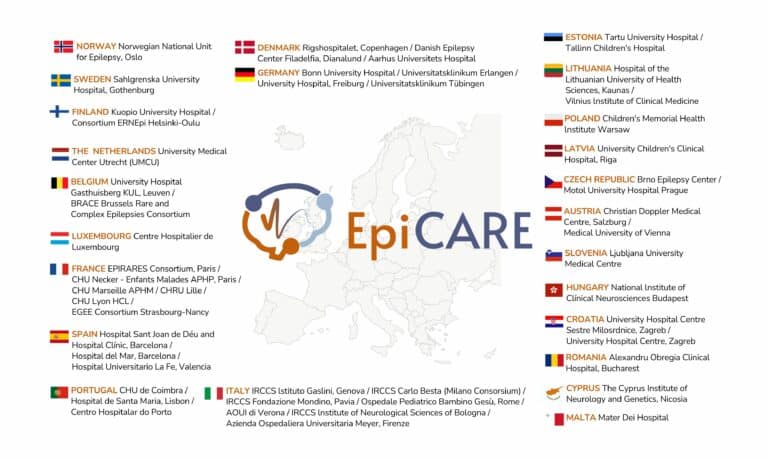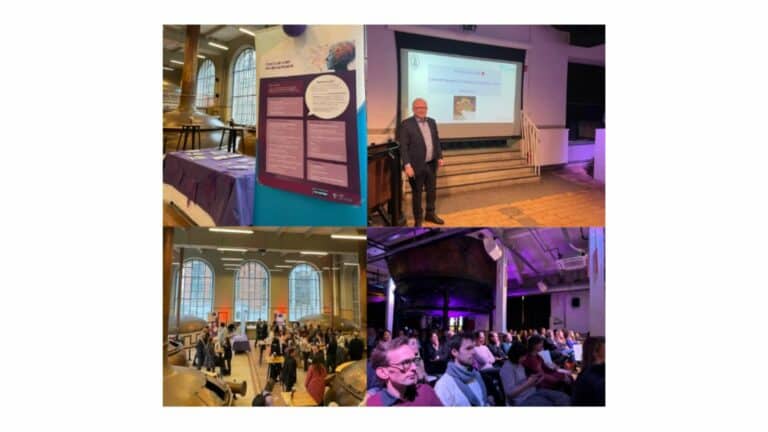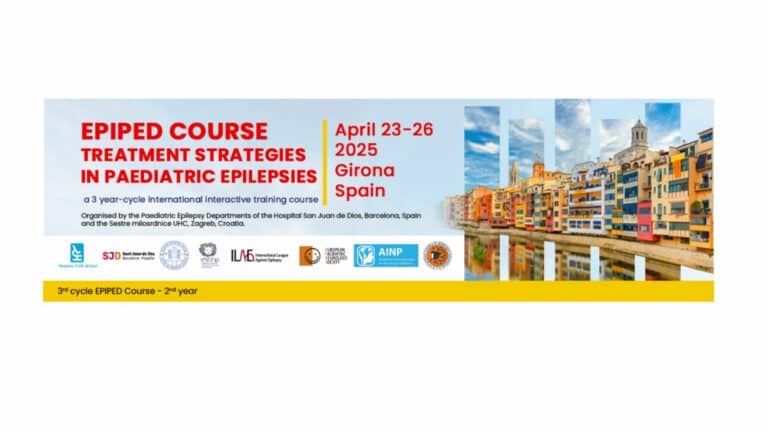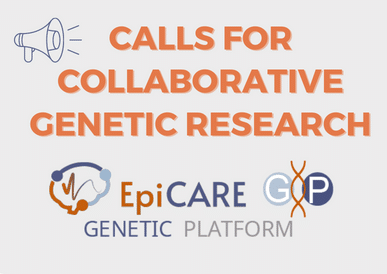EpiCARE
EpiCARE is the European Reference Network for all rare and complex epilepsies. The ERNs aim to improve care for rare diseases, reduce inequalities in access to the best diagnostic, treatment practices and investigational tools.
The ERN is composed by 61 medical teams of experts, accredited by their respective national authorities and the European Commission. It is present in 24/27 EU countries and in Norway. Supporting medical teams are present in Bulgaria, Greece, Ireland, Switzerland and in the UK.
In October 2023, the administrative coordination of EpiCARE was entrusted to the Hospital Sant Joan de Déu in Barcelona, under the leadership and coordination of Professor Dr. Alexis Arzimanoglou.
Leuven Childhood Epilepsy Center Launch!
Welcome to the Launch of the Leuven Childhood Epilepsy Center, which is taking place today, (February 14th) in Leuven, Belgium!
The goal is to establish a leading European centre for research, diagnosis and treatment of childhood epilepsy, supporting and funding research and educational projects. It will focus on:
– Clinical care for children with epilepsy.
– A Trial Centre for clinical studies in children with epilepsy.
– Fundamental and translational research in epilepsy: Biodiscovery of new molecules and genetic treatments of epilepsy / AI assisted EEG analysis and seizure prediction / Neurocognitive and neurobehavioural challenges in children with epilepsy.
Happy International Epilepsy Day 2025!
- Epilepsy has historically been a highly stigmatized condition.
- Currently, many people with epilepsy experience some form of stigma in their daily lives.
- Stigma can manifest in different areas, negatively impacting the quality of life of individuals with epilepsy.
- In some cases, the stigma itself can be more harmful than the seizures.
💪 Sometimes, stigma hurts more than the illness itself. Let’s replace judgment with understanding.
Save the date: Join the EPIPED Course 2025 in Girona, Spain!
We’re excited to announce the EPIPED Course 2025, taking place from April 23 to 26 in Girona, Spain! This course marks the second year of the current 3-year EPIPED cycle (2024-2026), a unique, international training designed to bridge geographical and knowledge gaps in epilepsy care.
The EPIPED-Treatment cycle (2024-2026) aims to regularly update neurologists and child neurologists on the best practices in epilepsy treatment.
Calls for collaborative genetic research
The Genetic Research workgroup is sharing opportunities of collaborative calls for European series of patients carrying variants in already known genes, to facilitate this type of studies by connecting several centers across Europe involved in the study of genetic epilepsies.
Have a look at the calls for collaborative genetic research here, and contact Sébile Tchaicha, Research project manager, if you have any question !
to regularly update neurologists and child neurologists on the best practices in epilepsy treatment.
EpiCARE: a European Reference Network for rare and complex epilepsies
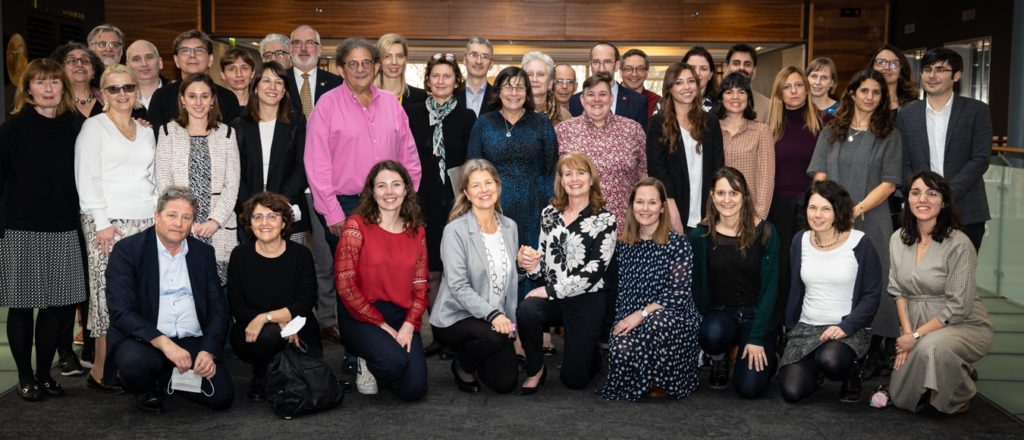
The European Reference Networks (ERNs) were launched in 2017. They involve more than 900 highly specialised health care teams, located in more than 300 hospitals in 24 European countries and in Norway. The main mission of the ERNs is to help patients with rare or low-prevalence complex diseases, and to shape healthcare systems and national networks.
A disease is defined as rare when it affects fewer than one in 2 000 people, is serious, chronic and often life-threatening. Between 5 000 and 8 000 of rare diseases affect daily life of around 30 million people in the EU.
The ERN EpiCARE brings together highly specialized health centres (38 full members and 12 affiliated partners) in 26 European countries with expertise in rare and complex epilepsies.
If you are a healthcare professional and would like to refer a patient to us, or if you are a patient yourself, or a family member of a patient, please get in touch via our contact page.
The rare disease community comes together in calling on the EU institutions and our national governments to stand by the European Reference Networks, and to uphold their commitment to enable long-lasting impact in people’s lives and, fundamentally, give all people living with a rare or complex condition in Europe the same opportunities to access timely and adequate specialised healthcare. Read the open letter from the rare disease community here
The objectives of the EpiCARE network
Accessibility
To improve accessibility of detailed diagnostics to individuals of all ages with rare and complex epilepsies across Europe, including clinical evaluation and investigation.
Developing treatment
To develop treatment protocols and monitor standardised outcomes of rare and complex epilepsies.
Awareness
To improve awareness and accessibility to protocols for physicians and individuals with rare and complex epilepsies across Europe for treatment.
Education
To enhance educational activities and training opportunities across Europe by interchange across the network.
Collaborative research
To enhance opportunities for registries, and collaborative research for the benefit of individuals with rare and complex epilepsies across Europe.
Agenda
Explore the preliminary program for the 3rd Conference on Artificial Intelligence in Epilepsy and Neurological Disorders (AI Epilepsy 2025).
The ZOOM link is always the same for all meetings and attached below for your information. Please feel free to share and invite your colleagues !
The third International congress on Structural Epilepsy & Symptomatic Seizures will be held in Wallenberg Centre, Gothenburg.
In 2019 and 2023, the first two editions of the congress Seizures and Stroke attracted over 130 participants each, from over ten countries to Gothenburg. Our meeting now returns – with a widened scope to all symptomatic and structural epilepsies. A three-day program of cutting-edge research and clinical presentations are combined with a teaching course for scientists and clinicians starting out in the field, and there are ample poster- and platform-presentation opportunities.
The ZOOM link is always the same for all meetings and attached below for your information. Please feel free to share and invite your colleagues !
We’re excited to announce the EPIPED Course 2025, taking place from April 23 to 26 in Girona, Spain! This course marks the second year of the current 3-year EPIPED cycle (2024-2026), a unique, international training designed to bridge geographical and knowledge gaps in epilepsy care.
Save the date and join the EPIPED Course 2025 in Girona, Spain!
The ZOOM link is always the same for all meetings and attached below for your information. Please feel free to share and invite your colleagues !
The Neurology, Epilepsy and Movement Disorders Unit of Bambino Gesù Children’s Hospital – IRCCS, and the Paediatric Neurorehabilitation Department of San Raffaele IRCCS Rome, Italy with the endorsement of ILAE-Europe, EpiCARE, and Lega Italiana contro l’Epilessia (LICE), present the educational initiative “Drug Resistant Epilepsies – 12th International Residential Course” that will take place in Tagliacozzo, Italy.
The ZOOM link is always the same for all meetings and attached below for your information. Please feel free to share and invite your colleagues !
The 11th Congress of the European Academy of Neurology will lead us back to the wonderful city of Helsinki on 21-24 June 2025. This year the congress will have an innovative and intriguing Overarching Theme that will address ‘Neurology within society’.
Welcome to the 16th Congress of the European Paediatric Neurology Society (EPNS) where we classify our field into A for Acute, B for Brain, Health & Science and C for Chronic. Following a successful EPNS congress in Prague, the next 16th EPNS congress will be held from 8 -12 July 2025 in Munich, Germany. In 2025, we expect 2,000+ participants from all over the world.
